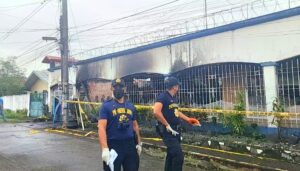The Senate Committee on Basic Education, led by Senator Win Gatchalian, will convene today to discuss the challenges of extreme heat on in-person classes and the shift to Alternative Delivery Modes (ADMs).
The hearing comes after recent school suspensions due to scorching temperatures, a concern amplified by PAGASA’s warnings of potentially dangerous heat index levels exceeding 52°C due to El Niño.
While DepEd allows schools to suspend classes and implement blended learning or ADMs like modular learning during emergencies, Gatchalian acknowledges the limitations. Limited internet access and difficulties faced by parents supporting remote learning pose significant hurdles.
“Some parents are hesitant about online or blended learning, concerned about their children’s learning and the burden of assisting with textbooks or workbooks. While many prefer face-to-face classes, recent suspensions highlight the need for solutions,” Gatchalian said, emphasizing the need for a balanced approach.
ZUBIRI PUSHES FOR JUNE SCHOOL OPENING
Senate President Juan Miguel Zubiri urged the Department of Education (DepEd) and the Commission on Higher Education (CHED) to expedite the shift, prioritizing the health and well-being of students and teachers.
“Extreme heat poses a real danger,” Zubiri said. “These weather conditions are not conducive to learning. Let’s prioritize the well-being of our students and teachers. If we can implement the June-to-March calendar next school year, let’s do it.”
Zubiri also withdrew Senate Bill No. 788, which originally aimed to synchronize the school year with international calendars. While acknowledging its advantages, he emphasized the current calendar’s disruption and health risks.
He cited data showing thousands of schools nationwide suspended classes due to the heat, impacting over a million students. DepEd’s Order 37 empowers school heads to implement alternative learning modes in such situations, with some areas experiencing temperatures exceeding 45 degrees Celsius.
Many local government units, like Quezon City, automatically suspend classes when the heat index reaches dangerous levels. DepEd’s existing plan involves a gradual return to the pre-pandemic calendar.
“Given the current situation,” Zubiri stressed, “it’s best to revert fully next school year. Let’s not expose students and teachers to these harsh conditions.”
DepEd has already announced a suspension of in-person classes on April 29-30. Zubiri commended these measures, highlighting the lack of air conditioning in most schools and the risk of heat stroke. These recent suspensions, he concluded, solidify the need for an immediate return to the June-to-March school year.




















